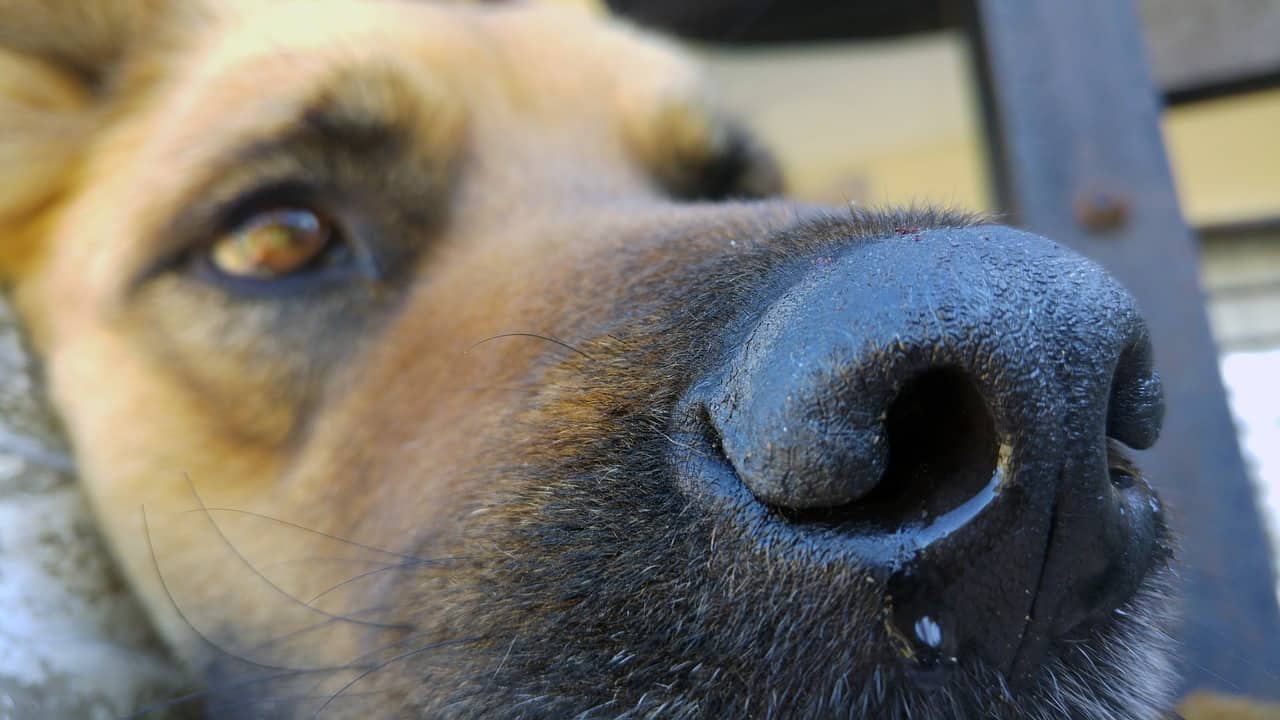In short; yes, dogs can get parvo more than once. The likelihood of them falling ill with the same strain of canine parvo is rare, but not impossible. And since there is more than one canine parvovirus strain and the nature of viruses is to mutate, dogs that have survived one strain of parvo are not guaranteed protection from other known strains or their inevitable mutations.
The closest analogy to be drawn is how we humans must take protection against the flu virus. Now these two viruses are worlds apart when it comes to deadliness, but they do come in different strains and for that purpose, we make this comparison:
If we survived the flu in 2016, it is not going to protect us from a new strain that arrives in 2019.
The Science and Research Behind Parvo
Another point to consider, and one that is a great source of frustration, is that canine parvovirus doesn’t receive nearly the same attention and research dollars as the human flu virus.
Information and solid statistics typically lag and are far more reactionary than preventative. The case studies available are often abstract or sometimes a decade old which leaves a lot of questions unanswered as to the progress made toward this deadly virus.
But there are certain questions and areas that seem to have consensus and we can review them now.
Contributing Factors for Dogs Getting Parvo Twice
Overall Health of Surviving Dog
Research suggests that when dogs receive early treatment for canine parvo, about 90% of them will recover. Of those 90%, studies show that about 10% of the survivors will experience some lifelong, residual health complications and very potentially: a weakened immune system.
If your surviving dog was part of the 10% of dogs that suffer health complications as a result of contracting parvo, they may not have developed the immunity necessary to defeat parvo a second time.
In contrast, if they made a 100% full recover, they are likely to have built an immunity that will last a very long time, but not necessarily “the rest of their lives.” Here are some other factors to consider for a second occurrence of canine parvo:
The Age When a Dog Survives Parvo
If your dog survived parvo at the age of 2, they may not necessarily carry immunity throughout their entire life, especially if they live 10-12 more years. By comparison, a dog that survives parvo at the age of 9, may very well be immunized for the rest of her life.
It’s a common question to ask: “will my dog be immune for the rest of his life?” But it’s far better rephrased as: “How long might my dog have a natural immunity now that he’s survived parvo?”
Variable and Mutating Parvo Strains
We touched on this briefly in the opening, but it’s a huge factor when considering if your dog can catch parvo twice and I’ll use the flu analogy one more time. If we contracted the flu in 2015 and survived, we did not achieve immunity for the flu virus in 2019.
Your dog could come into contact with a different strain of canine parvo and become seriously ill again. The vaccines our dogs receive for canine parvo are thought to protect against all CPV-2 strains of of canine parvo including:
- CPV-2a
- CPV-2b
- CPV-2c
However, a 2014 outbreak revealed that dogs given the vaccine were becoming ill when exposed to the CPV-2c strain that was located in a severe outbreak area.
This suggests vaccine failure could occur in different strains such as CPV-2c or in higher concentrations like a severe outbreak situation. And while vaccines are not exactly the same as immunity achieved through survival; there isn’t research that can definitively lead us to assume our surviving dogs are safe.
Viral Particle Exposure Count
Severe outbreaks or pandemics of canine parvo are not as common since vaccines were developed, but they have not been eliminated. If your dog enters a highly contaminated area that has significant viral particles in the millions and billions and ingests the virus, they may not be able to overcome the mass concentration.
How to Keep a Surviving Dog Protected from Parvo
Veterinary Collaboration
There is no replacement for regular visits with your veterinarian. Most dogs visit their veterinarian at least once a year and these visits are a prime opportunity to ask questions. In addition to the annual checkup (or whatever reason) use this time to inquire about canine parvo outbreaks.
Your vet or vet techs will have first hand knowledge of whether or not there is a rise in parvo in the area becasue they are likely to be seeing a sharp increase of infected dogs.
All you have to do is ask. Never assume your veterinarian knows or will remember that your dog survived parvo (and don’t take it personally). Just take the lead and say something like this:
“You may or may not recall, but __(dog’s name)__ survived a parvo infection __(When)__ and we never want to live through that again. What are the parvo outbreaks looking like right now?”
“You may or may not recall, but Buster survived a parvo infection last summer and we never want to live through that again. What are the parvo outbreaks looking like right now?”
While you’re in front of your vet, ASK about their recommendation for booster shots or titer tests going forward now that your dog survived parvo.
Titer Tests for Parvo Immunity
Titer tests are blood tests that detect whether or not atibodies are present for canine parvo. In theory, if antibodies are present, a certain amount of immunity can be expected. The test should indicate a level, not just: yes there is immunity or no there is not immunity.
Your vet can use the level to gauge protection and can recommend boosters or not.
Avoid The Hot Spots for Canine Parvo Outbreaks
Some dog owners have never experienced the horrible reality of a localized parvo outbreak while others know parvo is constant threat. Depending on where you live you may or may not have a good line of communication as to where parvo outbreaks are occurring.
This is one reason it’s so important to ask your vet’s office about outbreaks because they are very often the first to know and dealing with parvo on a regular basis.
When parvo outbreaks are suspected, do everything in your power to keep your dog away from places with high dog populations such as:
- kennels
- groomers
- dog parks
- pet stores that allow dogs
- dog washes
- free clinics
- vet’s office
In addition, make sure your walks are mindful and that your dog isn’t left alone to sniff or lick feces.
If you work in the dog industry yourself, have parvo killers on hand for home use, especially for spraying on shoes in order to disinfect any parvo viral particles you may have carried home. We have an entire page dedicated to Parvo Cleaners and Bleach Alternatives.
Can Dogs Get Parvo Twice – Summary
The best way to prevent your dog from contracting parvo a second time is to remain diligent and informed. Assume your dog is NOT protected for the remainder of his life and you will logically maintain the proper booster schedule and ask the appropriate questions.
Whether or not you decide on titer testing or providing the booster will be a decision for the future. The important thing to remember now is to keep your dog scheduled as normal and bring it up with every appointment.
Where to Now?
Research Guidance and Informational Sources
Pubmed.gov
National Institute of Health
US National Library of Medicine

